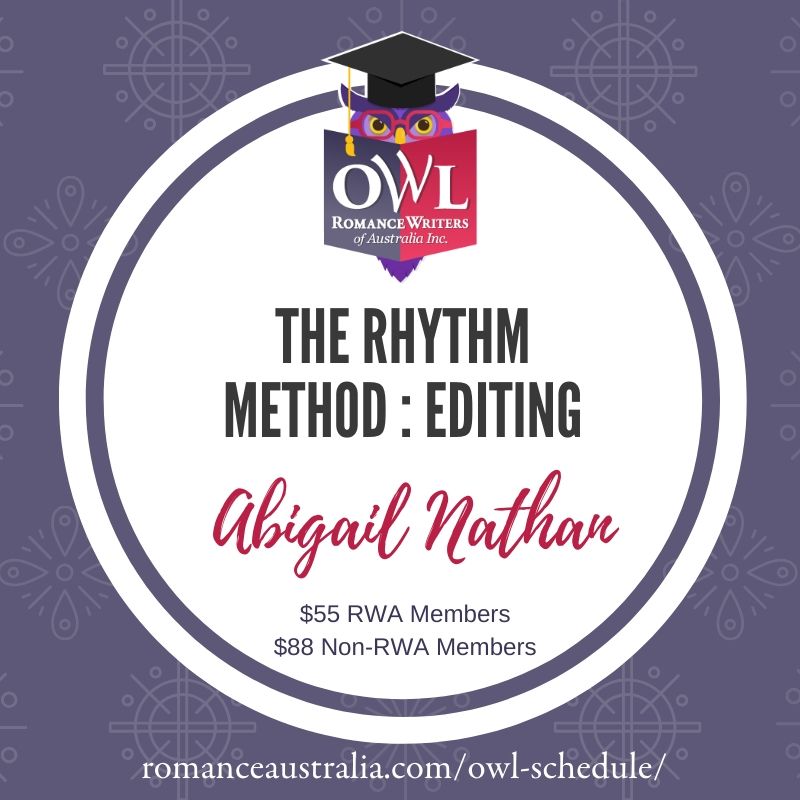Online Writing Lab for Romance Writers Australia

This month I am running an online workshop for RWA called The Rhythm Method. The following is an interview I did for Hearts Talk…
Who are you and what’s your experience?
I am a professional editor with a background in copywriting, magazine sub-editing and legal editing. I set up Bothersome Words Editing & Writing Services in 2004 and now focus on copy editing, proofreading, structural and developmental editing, as well as mentoring and workshops.
I’m based in Sydney and have edited for various Australian publishing houses, including HarperCollins, Penguin Random House, Hachette and Harlequin; UK publishers including Gollancz, Jo Fletcher Books and Orion; and worked as a commissioning and content editor for a small romance and erotica press in the USA. I also work regularly with emerging and self-publishing writers — mentoring and helping them to develop their work. I edit commercial fiction and non-fiction for adults, young adults and children, and particularly specialise in genre – including speculative fiction (fantasy, science fiction, paranormal and horror), crime, romance and erotica.
I occasionally blog about editing, writing and reading at http://www.bothersomewords.com/blog and am always on Twitter at @BothersomeWords. I volunteered for the Society of Editors (NSW) Inc. for over ten years and am currently a mentor for both Writing NSW and Queensland Writers Centre.
What will students gain from doing your OWL?
Students will learn some of the keys to successfully translating the story in their head onto the page – in other words, how to give the reader the same thrill and excitement that the author has imagined. The course will demystify some of the terminology and concepts that can alarm newer writers, so as well as tips and tricks to tighten their text, students will learn which writing “rules” are merely guidelines that can be adapted to suit their work. We will tap into the feel and rhythm of language and sentence structure, and explore how that can affect character, tone, and emotional impact.
Who the course is for:
It is designed for writers of all levels, but particularly those who have already begun their writing journey so they can apply the lessons directly to their existing manuscript as they go through the course. It’s ideal for anyone who wants to improve their writing skills and push their manuscript to the next level.
What excites you about this OWL?
I’ve spent the past few years talking to writers from different fields and genres about their writing processes and I am excited to be bringing these insights to the course. We’re going to be examining writing techniques from more of an instinctive, emotional standpoint, rather than focusing purely on the strict rules of grammar and punctuation. Although we will go over some rules, the course is less about how to do things “correctly” and more about how to reach the reader, make them feel, and keep them hooked.
We’ll be looking at storytelling methods and approaches outside novels to see how they might be applied or adapted to students’ work. There will be lots of exercises and opportunities for discussion and I am looking forward to seeing what students come up with.
The Rhythm Method runs from February 3rd-1st March 2020. You’ve got until this Thursday (6th Feb) to sign up!



